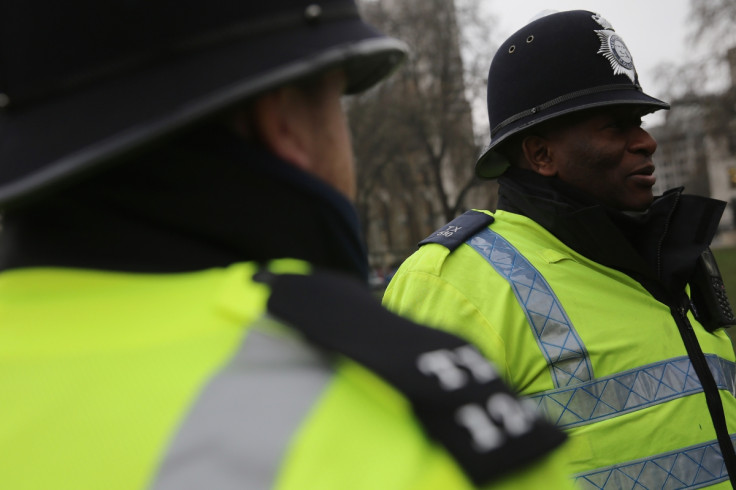Metropolitan Police's ethnic minority deficit is destroying trust in British policing

It has been 22 years since the murder of Stephen Lawrence led to a wide-ranging inquiry that concluded that the Metropolitan Police was "institutionally racist". It is a charge that has lingered. In 2013, 14 years after the publication of the Macpherson Report, the Metropolitan Black Police Association (MBPA), an organization which represents minority members of the force, issued a statement saying that the Met remained institutionally racist.
The group was careful to say that this was not necessarily about overt racism from individuals, but "police practice and procedures that bring about disproportionate outcomes for black and minority ethnic communities and police personnel".
More recently, in June this year, the Met commissioner Sir Bernard Hogan-Howe said that there was some justification for the claim. "If other people think we are institutionally racist, then we are. It's no good me saying we're not and saying you must believe me," he said in an interview for a documentary about Scotland Yard.
Police forces need to be seen as legitimate if they want to do their jobs effectively. It is difficult to avoid the fact that the Metropolitan Police force doesn't look like the community it serves.
This week, it emerged that of 245 complaints of racial discrimination made over the course of one year (from March 2014 to February 2015), no action was taken in 240 of the cases. In the remaining five, the Met took "management action", which is less serious than formal misconduct, coming under the remit of the normal responsibilities of managers in the police service.
That means that none of the police officers who were accused of racial discrimination faced any disciplinary action – including five unnamed officers who each faced three or more allegations in the 12-month period. It was concluded that there was no "case to answer" in any of the complaints submitted, which the head of the MBPA, Janet Hills, said was implausible.
The figures, revealed after a freedom of information request by the London Campaign Against Police and State Violence, are overwhelming. The Metropolitan Police has attempted to justify the fact that not a single case led to any action, telling reporters for the Guardian that most of the complaints were due to "a simple misunderstanding or poor communication".
But there is no escaping the fact that this looks like a blanket exoneration of police officers accused of racial discrimination.
This reflects a wider issue over perceived police impunity. The Metropolitan Police, in common with other local police forces, is essentially expected to investigate itself when complaints are made. The Independent Police Complaints Commission (IPCC) is occasionally involved, but it is largely staffed with former police officers and is seen by many as being too favourable to police.
A series of blunders in high-profile investigations into deaths at the hands of police – Jean Charles de Menezez, Sean Rigg, Mark Duggan (all people of colour) – has cemented the impression that the IPCC needs a serious overhaul. Often, the IPCC supervises or manages local investigations rather than undertaking them themselves. In short, this means that the Met, which senior officers acknowledge has a structural issue with racism, is investigating itself for allegations of racism. It's hardly a system that screams justice or transparency.
This matters, because police forces need to be seen as legitimate if they want to do their jobs effectively. It is difficult to avoid the fact that the Metropolitan Police force doesn't look like the community it serves.
Just 11% of Met officers are from an ethnic minority, compared with 40% of Londoners. The force is disproportionately white, policing a city that's ethnic minority population is only expanding. "It's not good for community confidence," said Hill, responding to the report about complaints being dismissed. "We've got to start getting it right. We need the community to trust us."
Many ethnic minority communities feel, with some justification, that they are unfairly targeted. In England and Wales black people are six times more likely to be stopped-and-searched (in some areas it is up to 28 times more likely). They are three times more likely to be arrested. Black and Asian people are also more likely to be charged after being arrested than white people are, and are significantly more likely to face custodial sentences.
Clearly, this racial discrimination is endemic, going far beyond the Metropolitan Police, to encompass our whole system of criminal justice. This was a sentiment expressed by Hogan-Howe in his television interview earlier this year. "I don't think people often understand what the term [institutional racism] means," he said.
"It's a label, but in some sense there is a truth there for some people and we've got to accept that. I think society is institutionally racist. You see lack of representation in many fields – of which the police are one – from judges to doctors, to journalists, to editors, to governments."
While this may be true, the fact that most of our public institutions are explicitly or implicitly racially biased does not exempt any of those institutions from attempting to drive change. When 245 complaints of racial bias result in not a single disciplinary action, the impression given is not of an organization that genuinely wants to improve its poor record in this area.
What these figures suggest is that the Metropolitan Police is more concerned with covering its own back than with seeking a new way of engaging with all of London's communities and casting off its record of racial discrimination. If it is serious about tackling institutional racism, a good place to start would be with listening to those who claim to have suffered at its hands and seriously considering whether there is any truth to their complaints; not immediately dismissing them.
© Copyright IBTimes 2025. All rights reserved.






















